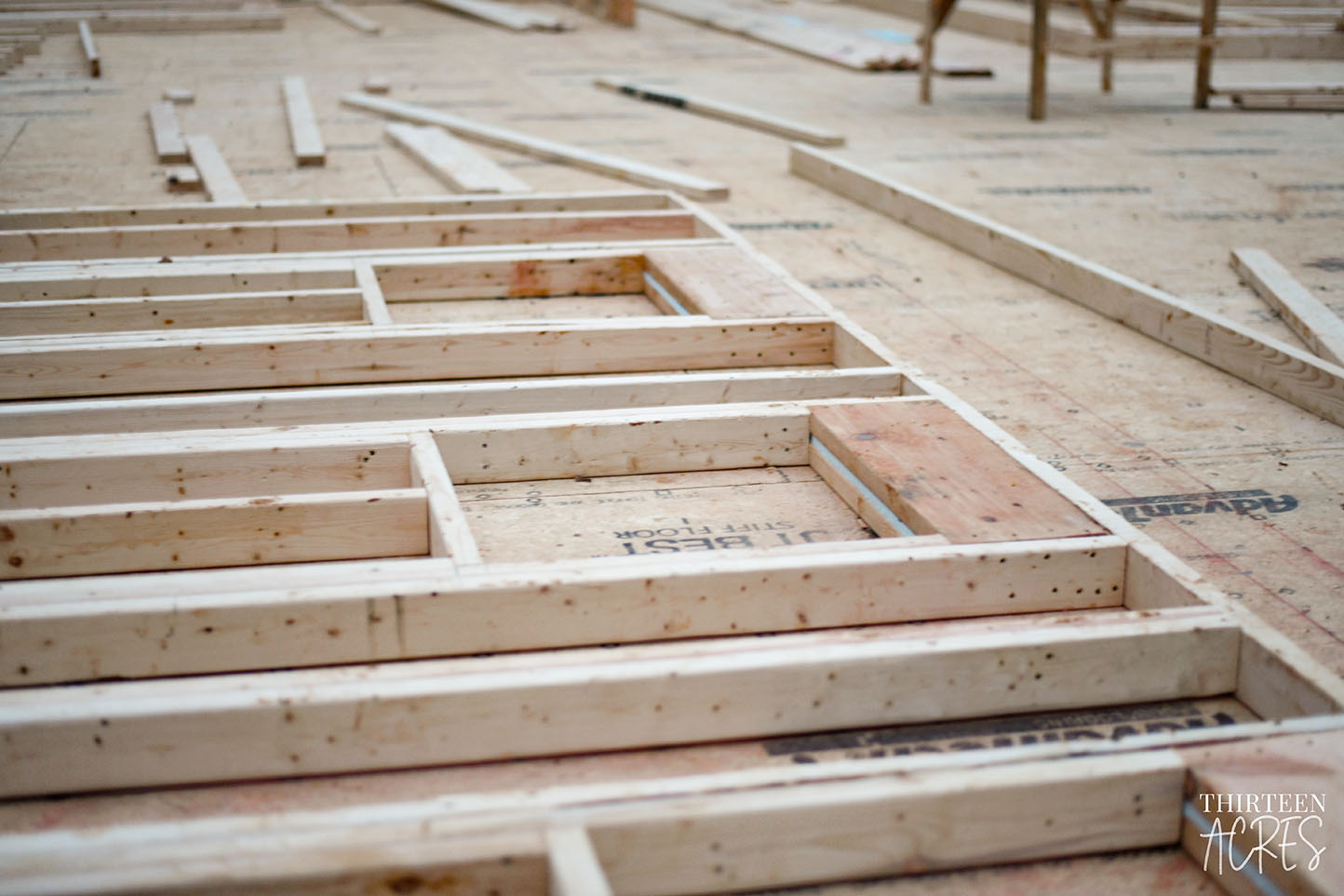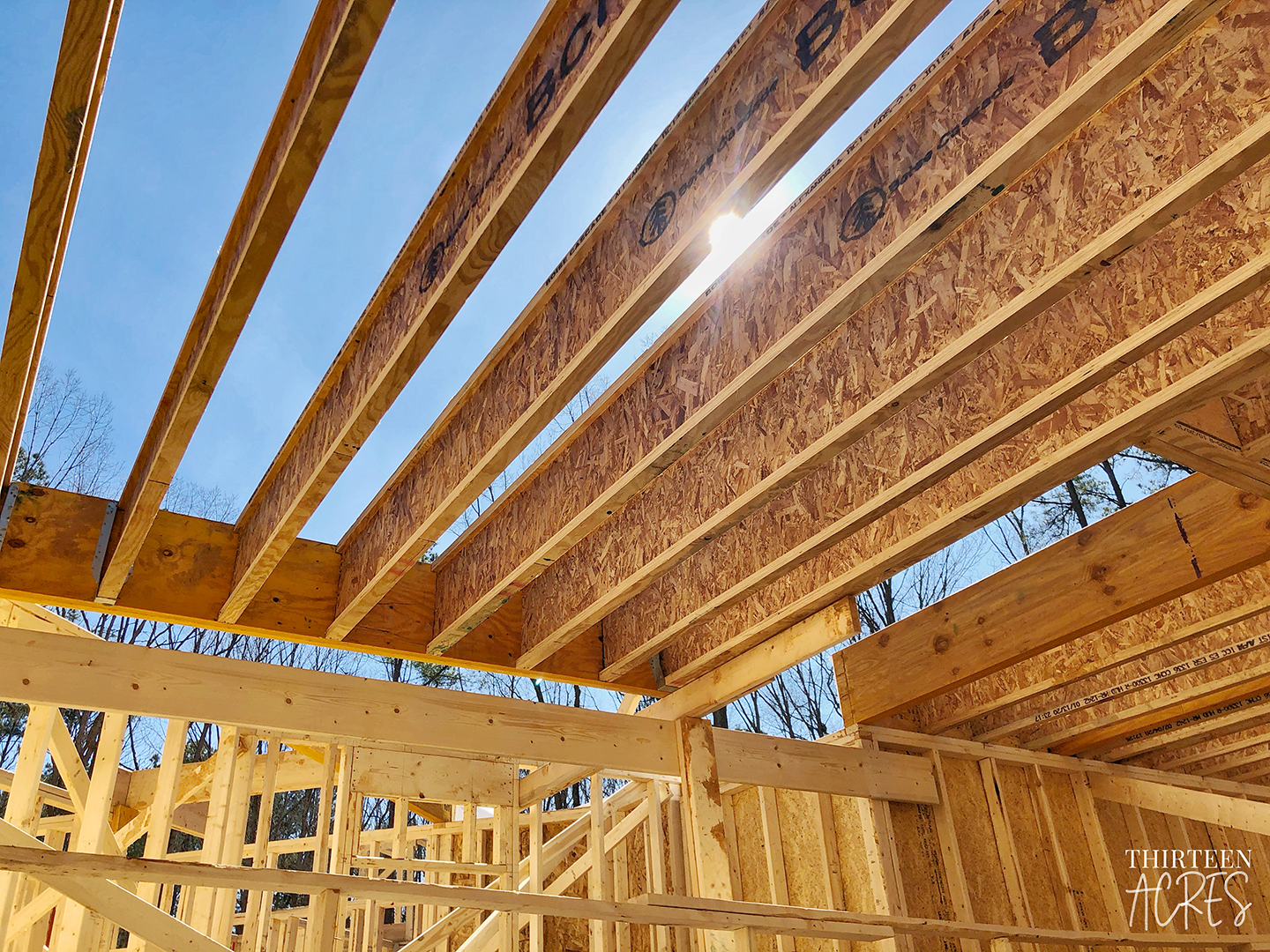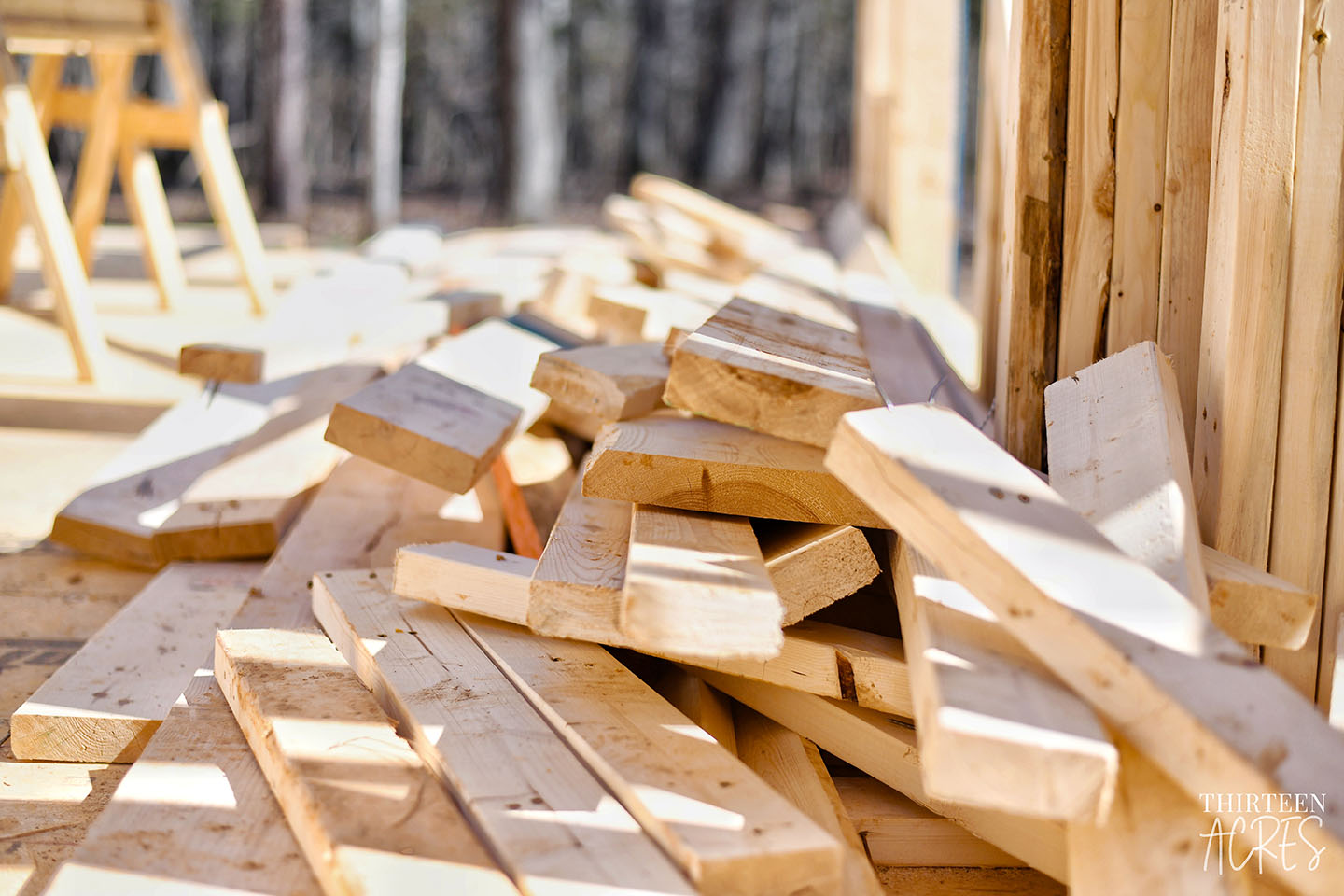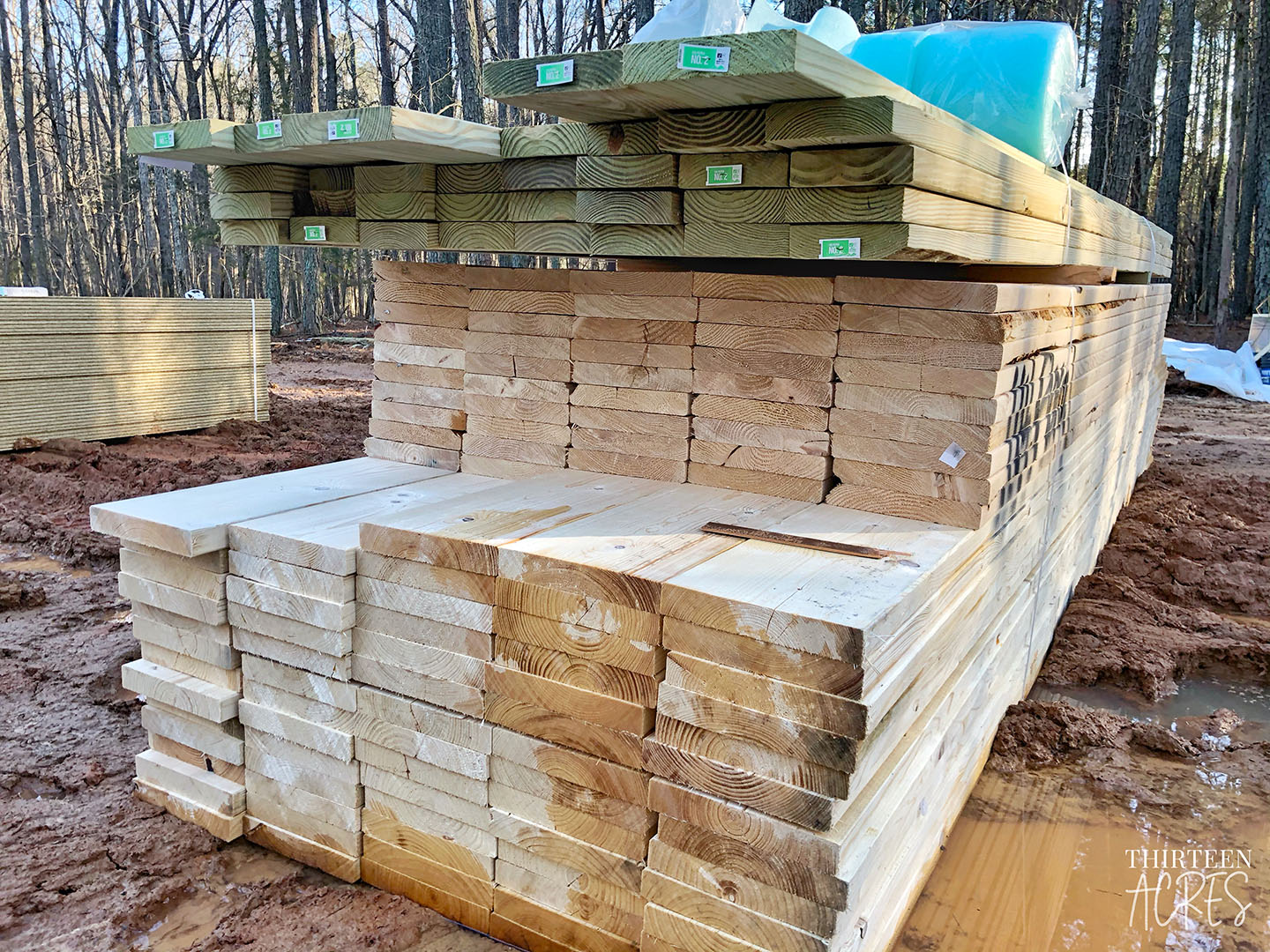Thirteen Acres is supported by our readers. When you buy through links on our site, we may earn an affiliate commission. As an Amazon Associate, we earn from qualifying purchases.
For our very first post we thought it would be beneficial to start from the very beginning. If you or someone you know is considering building a custom home, you may be wondering where to even start. The idea of building a custom home can be very overwhelming, and it's certainly not for the faint of heart. We'll try to break it down for you and discuss the many things to consider before moving forward.

If you're like us, building a custom home had been our dream, and we spent a lot of time discussing our wants and needs. If you haven't done this yet, or even if you have, this would be a great place to start. Consider the following:
- Where do you want to live? Do you want to live in a neighborhood with other houses nearby or would you prefer to purchase acreage for privacy or to have animals? Keep in mind, the location cannot be changed later on - the house design and floor plan can be.
- How much land would you like?
- What size house do you want to build? Consider the square footage and number of bedrooms and bathrooms. Do you need a formal dining room, office, basement, etc.?
- What style house would you like to build (farmhouse, ranch, two-story, etc.)?
- What is your timeline? How quickly would you like to move in?
- What are your finances like? Do you have money set aside for a down payment? Will you need to sell your current home prior to purchasing land? Will you need to get a loan?
- How much would you like your monthly mortgage payments to be?
If you're building this home with a significant other, make sure that you discuss these things together. If you have kids, include them as well. Even if everyone may not get exactly what they want, it's important to hear out all ideas and to make sure everyone's opinions are considered. Ultimately, it's important that everyone is on the same page. If you don't have kids, but plan to, keep that in mind as well, so that you can plan your house for your future needs.

Once you've discussed your wants and needs, begin crunching some numbers and figuring out a budget. How much can you afford? This will determine how much land and house you can get. Keep in mind that there are several different items to consider when figuring out how much a custom home will cost.
Construction costs vary based on location. With a little bit of research you can usually find the cost per square foot to build in your area. If not, you can always ask a local builder or someone in the construction industry. When we first started this journey, the average cost per square foot to build in our area was about $150-$200. Although this isn't a final cost, this will give you a good starting point. For example, if you're looking to build a 2,000 square foot home and the cost per square foot in your area is $150, the home would cost approximately $300,000. Keep in mind that this does not include the cost of your land.
The lot itself will be its own cost, whether you purchase it separately, or your builder assists you in obtaining the land. If you, like us, require a loan to help pay for your home, remember that most banks will require you to pay interest or make payments throughout the build process. You'll also need to consider permitting fees, closing costs, as well as any unexpected costs that arise due to changes that you decide to make along the way.
Lastly, you will need to factor in the cost of upgrades. Most builders have a standard set of finishes; however, things like raising the height of your ceilings, adding a screened-in porch, or custom built-ins would be considered an upgrade and incur an additional cost. When planning your budget, keep these possible upgrade costs in mind.

At this point, if you're going to need a loan, it would be best to research local banks and find one that offers a construction loan. Set up a meeting with them to get pre-qualified. This will give you a starting point and allow you to see if you can really afford what you want. Keep in mind that you don't necessarily have to work with this bank when you decide to move forward. Remember, most banks will qualify you for far more than you might feel comfortable with. Be aware of the money you have, the money you owe, and what you would feel comfortable paying monthly on a mortgage.
TIP: Pre-qualification does not mean that you're pre-approved. To get a pre-approval, you'll need a lot more documentation and a hard credit inquiry, so you should do this as you get closer to needing the loan. If you are considering multiple banks, get all of your pre-approvals within a few days of each other to avoid multiple credit inquiries.
If you come to find out that your budget doesn't quite allow for the size house and/or lot you were hoping for, this would be a good time to decide if you're willing to compromise by getting less land or a smaller house. If you have specific needs in mind and you're planning for this to be your forever home, perhaps it's better to hold off and make a plan to save up. Building a custom house is a long and difficult process - it takes a lot of time and money, so make sure your extra effort results in exactly what you want and need.
Think about some ways that you can save. Are there any loans you can pay off to reduce your monthly payments, which would free up money to set aside in savings? Can you cut back on how often you eat out or cancel any monthly memberships or subscriptions you no longer use? We had some money set aside to purchase land, but once we realized the search was taking longer than anticipated, we decided to use some of that savings to pay off our student loan debt. This removed a monthly payment that we could then begin putting into savings. It also eliminated debt, which was beneficial for us when applying for our loan, as we had a lower debt-to-income ratio.

Once you've got your budget figured out and have been pre-qualified, determine whether you'd like to start with the lot or with a floor plan. If you're planning to build on a smaller lot, it would be beneficial to figure out the floor plan you'd like first. If your heart is set on a specific floor plan, it's best to ensure that the footprint of that home will work on the property you want to purchase. A builder may be able to help you find a lot that will fit your home. If this sounds like the route you'll need to take, then the next step would be to find a builder, which we discuss here.
On the other hand, if you're planning to buy a number of acres, you can almost certainly make any floor plan work. Having both grown up with larger yards, we knew that we wanted at least 10 acres. With that much land, we didn't feel that we would have any trouble making our house footprint work, so we started by finding the ideal piece of property. We discuss finding the right property for you in this post.
At the end of the day, do lots of research and then research some more! Building a custom home is a big undertaking, but one that should be fun and exciting. The process may be long, but it will all be worth it in the end!
If you're on the custom home building journey, let us know in the comments below. Where are you in the process? Was it difficult to get started? Do you have any additional advice to share?

Comments